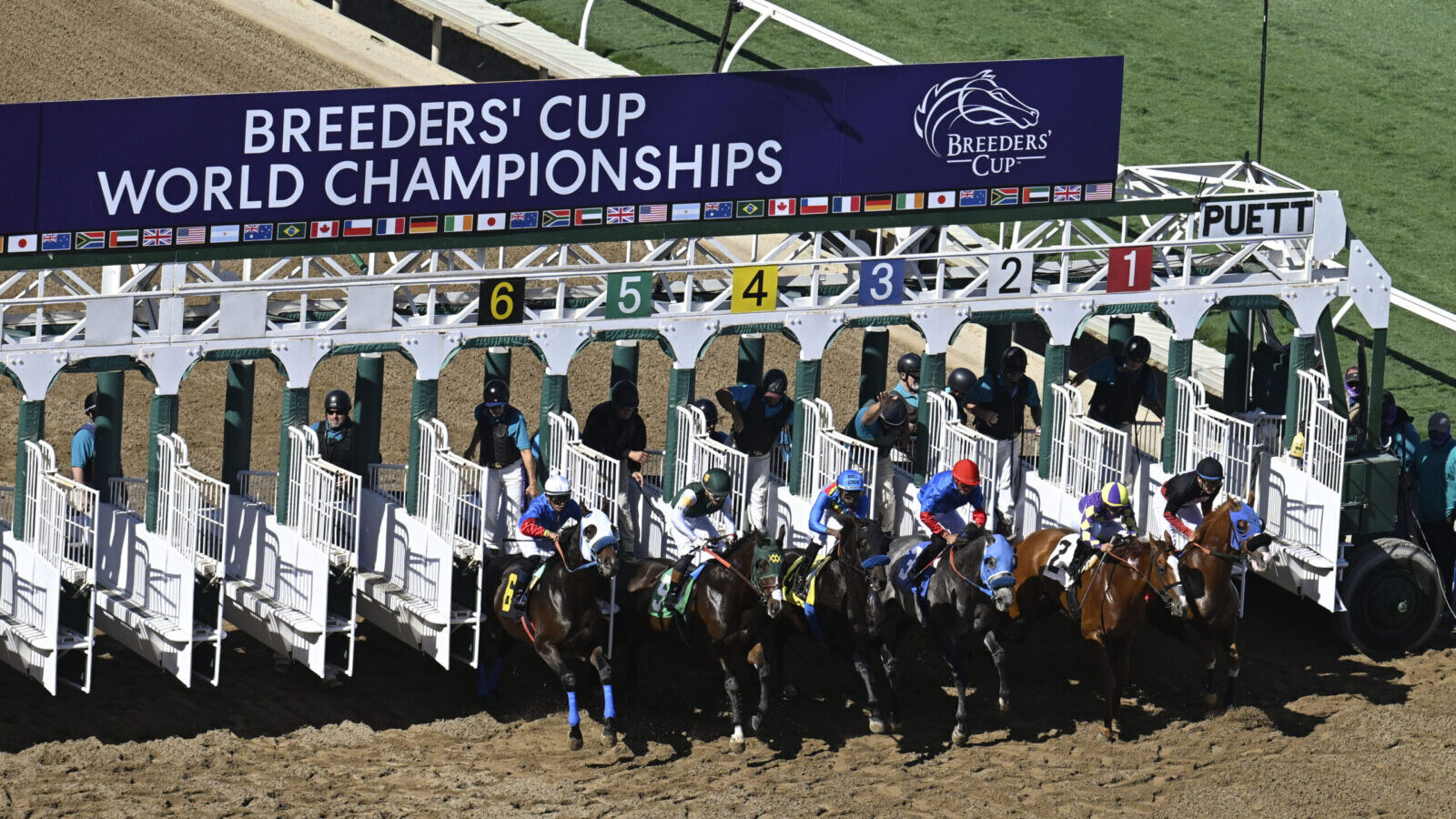Lawsuit Alleges Institutional Collusion To Defraud Horse Racing Bettors
Major entities accused of rigging system to aid computer-assisted wagering syndicates they own
3 min

The national law firm Hagens Berman filed a class-action lawsuit Friday against major entities in the American horse racing industry accusing them of colluding to “destroy value for retail bettors” in a rigged system that revolves around so-called computer-assisted wagering (CAW) platforms.
The suit, filed in U.S. District Court for the Eastern District of New York, names several pillars of the horse racing industry as defendants: the Stronach Group, the Canadian owners of racetracks in California, Florida, and Maryland; Churchill Downs, the publicly traded company best known for owning the Churchill Downs Racetrack where the Kentucky Derby is held; the New York Racing Association (NYRA), the nonprofit that runs thoroughbred racing at New York’s three major tracks; AmTote International, a subsidiary of the Stronach Group that acts as clearinghouse of data for wagering pools at racetracks; and United Tote, another data clearinghouse owned by Churchill Downs and NYRA.
Those entities are targeted for their ties to two major CAW platforms used by mysterious, deep-pocketed bettors: the Elite Turf Club, owned 80% by the Stronach Group and 20% by NYRA, and Velocity, a wholly owned subsidiary of Churchill Downs. A third CAW platform, Racing & Gaming Services, is also named as a defendant.
The suit alleges that the racetrack owners and operators as well as their subsidiary data clearinghouses confer numerous advantages and give special treatment to their related CAW platforms in an illegal scheme to manipulate betting pools and defraud everyday bettors.
High-volume, last-second betting
Well-funded, professional betting teams use CAW platforms to place highly strategic and astoundingly predictive wagers based on computer analysis. Thanks to special, direct connections to clearinghouse data and real-time feeds of races, these platforms can facilitate numerous bets just seconds before the start of a race to maximize winnings. Their activities now account for about one-third of all U.S. horse race betting, according to the complaint — approaching $4 billion annually.
Bettors through CAW platforms typically are charged lower fees and granted rebates unavailable to other bettors, preferential treatment that the lawsuit claims amounts to “no-risk, no-loss” wagering. What’s more, they and their operations are shrouded in secrecy, with the lawsuit noting that “[t]he identity and make-up” of CAW platform users are “kept secret, and the sources of their funds are not publicly known.”
The suit accuses the defendants of violations of the Racketeer Influenced and Corrupt Organizations Act for allegedly leveraging the very foundations of horse race betting to deprive traditional bettors of equitable winnings. Unlike at a sportsbook, horse racing odds aren’t set by the house. They’re set by the bettors themselves in a system known as pari-mutuel betting.
When bettors wager on a horse race, all of the money on a specific bet is collected into a single pool, such as the Win Pool for the horse picked to come in first. The house takes a cut off the top, known as the “takeout,” with the rest of the money in the pool eventually going to the winners.
As the pool builds with more and more bets, the odds on each horse are adjusted based on the betting activity. With their ability to place large wagers seconds before a race starts, bettors on CAW platforms are able to survey the aggregate betting activity, find vulnerabilities in the mass of data, and then “cause last-second odds drops that destroy value for retail bettors” but benefit themselves, the suit alleges.
‘Essentially rigging the betting pools’
Altogether, the defendants “exercise complete control over the betting pools at racetracks,” which they use to “give an unfair edge” to the CAW platforms, “essentially rigging the betting pools and making it impossible” for regular gamblers “to bet on a true pari-mutuel basis, or at the odds they believe they are betting on.”
The listed plaintiff in the case is a Colorado resident, Ryan Dickey, who is described as previously betting about $100 a week on horse racing. He’s brought the case on behalf of everyone in the United States “who placed wagers into CAW Impacted horse race betting Pools on Thoroughbred horse races while not using a CAW account.”
The suit seeks both compensatory damages for actual losses and expenses as well as treble damages, which is three times actual damages for egregious misconduct.
In a press release announcing the lawsuit, Hagen Bergman’s founder and managing partner, Steve Berman, a prominent class-action lawyer, said, “We believe this scheme is not a victimless crime. Its victim — the average public bettor — has been caught in a modern reverse-Robinhood scenario in which a select few with inside information are stealing from average public retail bettors and giving to the already rich — a small group of bettors and the operators of racetracks and betting platforms — the wealthy and few.”






